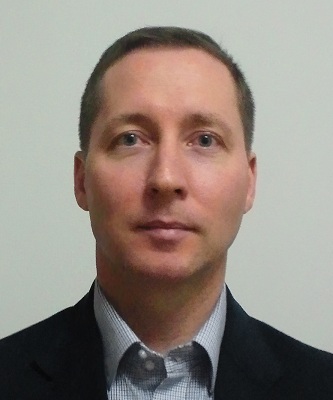- HAN Guangju (Exploring the Stylistic Features of Financial News: A Corpus-based Study of the Verb Pattern V n)
- CHANG Anano & LV Haihui (Comparative Study: Differences Between Proses Written by Human Writers and Proses Automatically Generated by Large Language Models from the Perspective of Quantitative Linguistics)
- SU Xiaoqi & MA Qing (Showdown Looming in the Forbidden City A Corpus-based Study of Translanguaging Strategies Use by a Bilingual Chinese Author of English Fiction)
- LIU Guangxiong Leon, Ron DARVIN & MA Chaojun (Unpacking the Nexus of Motivation and Enjoyment in AI-mediated Informal Digital Learning of English (AI-IDLE): A Mixed-method Investigation in the Chinese University Context)
- ZHANG Chang, XIE Qin & WANG Lixun (Generative Artificial Intelligence and Digital Writing: An Analysis of Source Use)
PPT TemplatePlease click here to download the PPT template.
- CHANG Anano & LV Haihui (Comparative Study: Differences Between Proses Written by Human Writers and Proses Automatically Generated by Large Language Models from the Perspective of Quantitative Linguistics)
Keynote Speakers

Professor Glenn Stockwell (Waseda University)
Artificial Intelligence in Language Teaching and Learning: Exploring the Road We're Travelling
About the speaker:
Glenn Stockwell (PhD, University of Queensland) is Professor of Applied Linguistics at the Graduate School of International Culture and Communication Studies, Waseda University. He is author of Mobile Assisted Language Learning: Concepts, Contexts and Challenges (Cambridge University Press, 2022) and editor of Smart CALL: Personalization, Contextualization, & Socialization (Castledown) and Computer Assisted Language Learning: Diversity in Research and Practice (Cambridge University Press, 2012). He is editor-in-chief of Computer Assisted Language Learning and the Australian Journal of Applied Linguistics. His current research interests include the impact of technology on teaching and learning, mobile-assisted language learning, artificial intelligence in language education, teacher and learner training with technology, and the development of learner autonomy.
Abstract:
Despite having been with us for decades, the past few years have witnessed phenomenal leaps in the development of artificial intelligence (AI), making this one of the most transformative periods not only for education but also for society at large. Generative AI, which revolutionizes how people interact with technological tools and resources, has naturally piqued interest in the field of language education. AI-driven tools, including intelligent tutoring systems, adaptive learning platforms, and chatbots, have gradually shaped language learning frameworks over several years, catering to diverse learner needs and fostering a more engaging, interactive, and efficient learning environment. The monumental shift brought about by recent advances in sophisticated machine translation (MT) and large language model (LLM) technologies has led to an almost instantaneous transformation in teaching and learning practices, and keeping pace with these developments has proven challenging for many. This presentation offers a comprehensive overview of the journey we've undertaken thus far, providing insights that allow us to envision the path ahead. Going beyond hype and conjecture, it explores the steadily growing body of empirical evidence, realistically assessing what lies before us. The discussion considers the interconnected threads in second language teaching and learning, encompassing pedagogical, research, ethical, policy, and legal implications.

Professor Zhang Jun Lawrence (University of Auckland)
Students' Cognitive Processes in Generative AI-assisted Digital Multimodal Composing and Traditional Writing
About the speaker:
Lawrence Jun Zhang, PhD, is Professor of Applied Linguistics/TESOL and Associate Dean for the Faculty of Education and Social Work, University of Auckland, New Zealand. His major interests are in learner metacognition, the psychology of language learning and teaching, and teacher education, with particular reference to EFL reading/writing development and ESP/EAP. He has published extensively along these lines in leading international journals, including Applied Linguistics, Computers and Education, Computer Assisted Language Learning, Modern Language Journal, Studies in Second Language Acquisition, TESOL Quarterly, Language Teaching Research, Discourse Processes, Reading and Writing, System, among others. He was the sole recipient of the "Distinguished Research in TESOL Award" in 2011 for his article, "A dynamic metacognitive systems perspective on Chinese university EFL readers", published in TESOL Quarterly, 44(2). He is currently Co-Editor-in-Chief of System, serving on the editorial boards of seven international journals, including Journal of Second Language Writing, Applied Linguistics Review, RELC Journal. In 2016 he was honoured with the recognition by the TESOL International Association (USA) with the award of?"50@50", which acknowledged "50 Outstanding Leaders" around the globe in the profession of TESOL at TESOL's 50th anniversary celebration in Baltimore, Maryland. In November 2016, he was successfully elected to the International TESOL Association's Board of Directors. In the Stanford University Rankings 2022 and 2023, he was listed in the top 2% of Scientists in the World in the disciplinary areas of Linguistics/Applied Linguistics. https://orcid.org/0000-0003-1025-1746
Website: https://unidirectory.auckland.ac.nz/profile/lj-zhang
Abstract:
Recently, generative AI-powered chatbots such as ChatGPT and Bing Chat have garnered increasing attention on a global scale. Previous studies have focused mostly on the influence of generative AI on writing while few research have investigated how generative AI can facilitate students' multimodal writing process. To fill in this gap, we explored the AI-assisted composing processes of two groups of EFL writers over two weeks in this qualitative study. One group completed a multimodal PowerPoint (PPT) project, and the other group completed a traditional argumentative essay project. Our data constitute of students' screen recordings with think-aloud protocols, final (multimodal) texts, and post-project interviews. Our analysis showed different patterns in text production across the two groups. Students in the PPT group tended to construct more bridge texts and examples to corroborate its sub-claims in the hierarchical order. They were also inclined to borrow the summarized search results from the Bing Chat to expand texts for their PPT slides. With regards to image generation for PPT slides, descriptions of AI images from ChatGPT were used as effective prompts to generate AI images from Bing Image Creator. Moreover, students were interested in producing and refining AI images following the recommended prompts by Bing Chat. They also evaluated these AI images from different perspectives. I conclude this discussion with a discussion of the pedagogical implications and suggestions for further study.

Professor Hayo Reinders (Anaheim University)
Humanising Technology in Language Learning & Teaching?
About the speaker
Dr. Hayo Reinders (www.innovationinteaching.org) is TESOL Professor and Director of the doctoral programme at Anaheim University in the USA as well as Professor of Applied Linguistics at KMUTT in Thailand. Hayo is Editor of the journal Innovation in Language Learning and Teaching and edits a book series on 'New Language Learning and Teaching Environments'. He founded the Institute for Teacher Leadership. He has published 30 books and over 200 articles on such topics as teacher leadership, learner autonomy, and educational technology. He is a speaker for the Royal Society of New Zealand.
Abstract
What stays the same when everything changes? Technological developments, in particular in AI, present us with challenging and urgent questions. However, these are often prompted by the technology, rather than by us. As a result, we may end up looking for answers to questions that are not relevant to us. In this presentation I want to bring the conversation back to where it belongs: with us teachers and our learners. For this, I introduce the concept of Positive CALL (Reinders, forthcoming), or a values-based-approach to the use of technology that aims to enhance learner and teacher wellbeing and thriving. This is a humanistic perspective that places personal growth at the heart of our conversations about technology and that fosters educational sustainability. At a practical level, I present ways in which teachers can (help their learners to) take a more constructive and agentic approach to technology. I give examples of ways in which technology has served the educational needs and goals of communities, not the other way around. I show everday strategies that can help us develop digital wellbeing and demonstrate how teachers can exert leadership to maintain control over their professional identity and aspirations. The aim of the presentation is to imagine new, human-centred opportunities for the role of technology in education.

Professor Alex Boulton (University of Lorraine)
A corpus-based synthesis of research in data-driven learning
About the speaker
Alex Boulton is Professor of English and Applied Linguistics at the University of Lorraine and former director of the ATILF research group (CNRS & UL). He is editor of ReCALL, and is on boards and committees for EUROCALL (European Association for Computer Assisted Language Learning), TaLC (Teaching and Language Corpora) and AFLA (Association Francaise de Linguistique Appliquee), as well as for various scientific journals. Particular research interests centre on corpus linguistics and potential uses for 'ordinary' teachers and learners (aka data-driven learning), with numerous publications in this area including several syntheses of DDL in recent years.
Abstract:
Data-driven learning (DDL) involves the use of corpus tools and techniques for learning or using a second or foreign language (L2). Though it may or may not be considered "mainstream" practice, it has been the subject of nearly 800 empirical studies to date. The question then is how to make sense of this mass of research. Following on from my online presentation at TeLLT & CoLLT in 2021, this paper briefly reviews syntheses of DDL before outlining a new survey, first by narrowing the field to a more manageable selection of the most visible research in the area, i.e. published in high-ranking journals. This gives us 175 papers up to and including 2022 (at the time of writing, 2023 is to be completed but currently stands at a further 12 articles). These papers are manually coded but also, crucially here, collected into a corpus to be analysed in its own right, totalling 1.2m tokens. The two main comparison points are (a) comparing the last 5 years against earlier research; (b) comparing these DDL papers against an equivalent corpus of non-DDL papers published in the same journals and years. This allows a two-pronged exploration of the two main research questions: RQ1. What does DDL look like today? RQ2. What distinguishes DDL from similar but non-DDL research.

Professor Lan Yu-Ju (National Taiwan Normal University)
Customized Pedagogical AI Agents: Opportunities and Challenges in Language Education
About the speaker:
Dr. Yu-Ju Lan is a Research Chair Professor in the Department of Chinese as a Second Language at National Taiwan Normal University. She is currently the Editor-in-Chief of Educational Technology & Society, Associate Editor of Language Learning & Technology, and on the editorial board of Ampersand. She was awarded the Outstanding Research Award by the Ministry of Science and Technology (MOST), Taiwan, in 2022. Dr. Lan is the founding president of the Taiwan Pedagogy and Practice in TELL Association. Her research interests include technology-enhanced foreign language learning, virtual reality, AI, and online synchronous teacher training.
Abstract:
Over the years, artificial intelligence (AI) has become increasingly integral to language education. However, the recent emergence of generative AI (GAI) models like ChatGPT in November 2022 and Midjourney in July 2022 has sparked renewed interest in their potential applications and limitations in education. Generative AI holds significant promise for revolutionizing education in numerous ways. The speech will begin by providing a brief overview of GAI, followed by an exploration of the current challenges faced by educators and students in the educational landscape. It will then delve into a GAI-based solution, offering practical examples. Finally, a novel pedagogical framework will be proposed, leading to a brief conclusion.

Professor Eric Friginal (The Hong Kong Polytechnic University)
Leveraging Linguistic Frequency Data: Innovations at the Intersection of Corpus Linguistics, Language Teaching and Learning, and Generative AI
About the speaker
Eric Friginal is Professor and Head of Department of English and Communication at The Hong Kong Polytechnic University. He is also the director of PolyU's Research Center in Professional Communication in English (RCPCE). Before moving to Hong Kong, he was Professor and Director of International Programs at the Department of Applied Linguistics and ESL, College of Arts and Sciences at Georgia State University. He specializes in applied corpus linguistics, quantitative research, language policy and planning, technology and language teaching, sociolinguistics, cross-cultural communication, discipline-specific writing, and the analysis of spoken professional discourse in the workplace. His recent corpus-based publications include The Routledge Handbook of Corpus Approaches to Discourse Analysis (2021), co-edited with Jack Hardy; English in Global Aviation: Context, Research, and Pedagogy, with Elizabeth Mathews and Jennifer Roberts (2020); and Corpus Linguistics for English Teachers: New Tools, Online Resources, and Classroom Activities (2018). He is the founding co- editor-in-chief of Applied Corpus Linguistics (ACORP) Journal (with Paul Thompson).
Abstract:
In recent years, the fields of corpus linguistics, computer-assisted instruction, and (second) language teaching and learning have witnessed a notable convergence, leading to the emergence of exciting new prospects for effective and successful language education (Friginal, 2018; Chapelle & Jamieson, 2009). The advent of generative artificial intelligence (GenAI) more recently has introduced fresh avenues and anticipated challenges, accompanied by promising outcomes and the necessity for a paradigm shift (Berber-Sardinha, 2023; Curry, Baker, & Brookes, 2024). This presentation aims to synthesize the dynamic intersection of these disciplines, shedding light on innovative approaches that harness linguistic frequency data to optimize language instruction across a wide range of speech and writing registers. By capitalizing on corpora and computational techniques, educators can acquire a profound understanding of the intricacies associated with register-specific language usage (Biber, 2006). Subsequently, I will share and discuss sample activities and tools, allowing participants to observe firsthand the application of linguistic frequency data in conjunction with GenAI to develop targeted teaching materials and curricula. For instance, GenAI models can fuel interactive conversational agents that engage in simulated conversations with students, thereby affording them opportunities for language practice and feedback. Through data-driven learning, these agents can adapt their responses to individual learners, taking into account their strengths, weaknesses, and learning objectives. These activities will serve as demonstrations of how corpus-based insights can be seamlessly integrated into GenAI-assisted language classrooms, fostering more authentic and communicative language acquisition experiences. Finally, I will offer my reflections on the current and future role of corpora in the classroom, given the palpable influence of GenAI.
Best Paper Award


